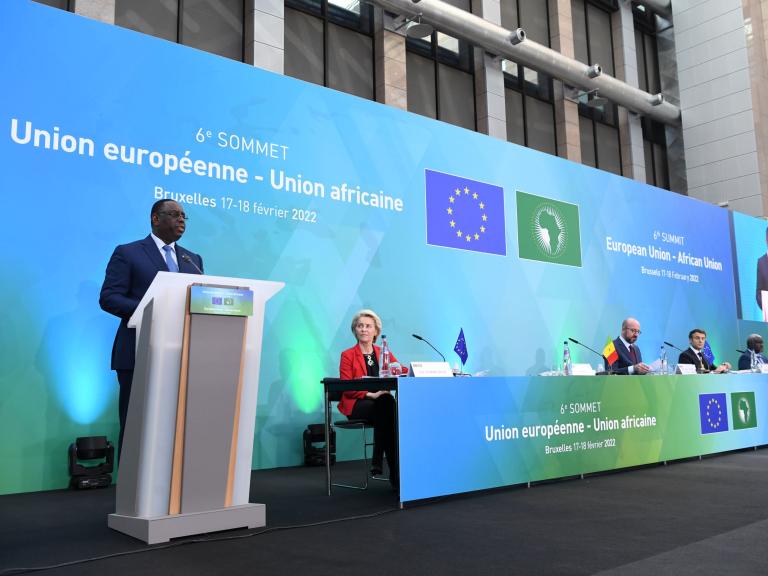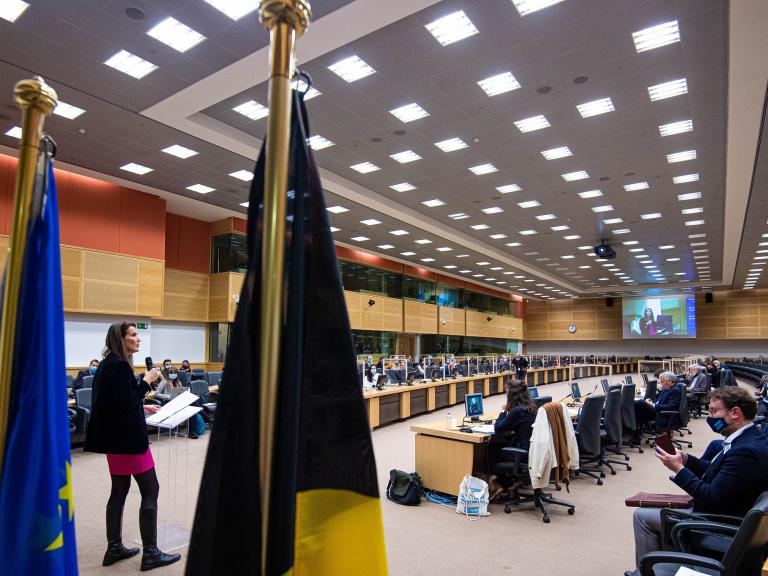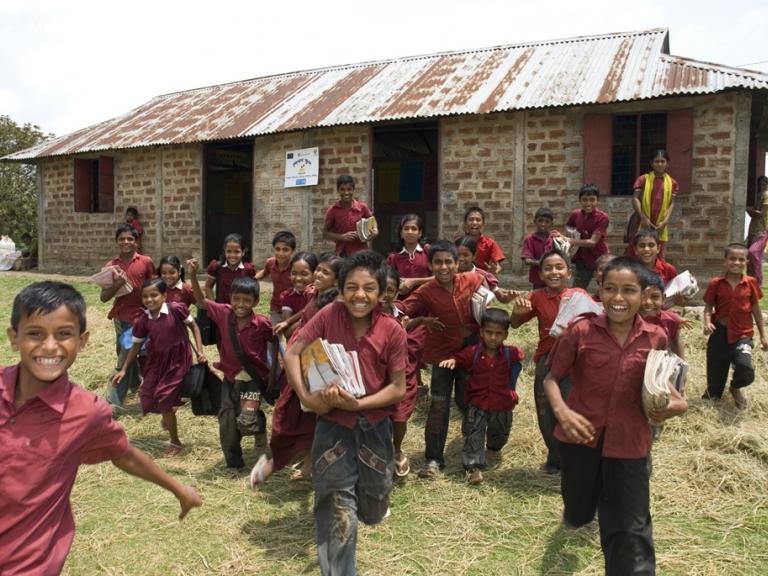-
Last updated on

© Shutterstock
Agriculture
The main components of the Common Agricultural Policy (CAP) are direct payments to support farmers' incomes, the common organisation of the markets for agricultural products and the development of the EU's rural areas.
Objectives for Belgium
One of the features of Belgian agriculture is the peri-urban nature of its agricultural areas. In our densely populated country, the use of agricultural land is subject to competition from housing, industrial areas and road infrastructure, even in the countryside. The result is upward pressure on land prices, which is difficult to sustain, especially for young farmers who are setting up and have to make major investments in their farms. In addition, compared to other sectors, the income from agricultural activity is lower and working conditions (number of hours worked, arduousness of tasks, etc.) are harder, which can be a serious disincentive to the profession. This is why, in Belgium, CAP financial support is particularly aimed at investments in agricultural holdings and the setting up of young farmers.
The last decade has seen the "greening" of agriculture. The CAP has introduced an obligation for farmers to put into place practices that are good for the environment and for the fight against climate change, in line with the aims of the European climate strategy (Green Deal, long term strategy for a climate-neutral EU in 2050). In order to be entitled to the CAP financial support, farmers must provide environmental services. For example, it is mandatory to have crop diversification and an area of ecological interest on each farm or group of farms. In Belgium, alternatives are planned, such as plant cover, extensive grassland, crops with a positive contribution to eco-efficiency, agroforestry, mechanical weeding and direct seeding.
The common organisation of agricultural markets is another essential component of the CAP. It embodies the importance of a competitive and efficient food production chain. Belgium advocates strengthening the bargaining power of farmers in the food production chain through the creation of producer organisations and inter-branch organisations in all sectors of agriculture. Producers must have real bargaining power within the agri-food sector. Belgium is clearly in favour of these organisations being able to collectively negotiate the prices and quantities of their members' products.
At the end of 2018, agreement was reached in the European Union on a directive to combat unfair commercial practices, one of the main causes of imbalance in the food chain. Its scope protects 100% of farmers and 97% of agricultural businesses. Over time, the CAP has established a "safety net", a set of mechanisms to deal with market disruptions and the increasing volatility of farmers' incomes caused by significant price fluctuations in internal and external markets. In this context, Belgium regularly insists on the need for supply and risk management tools, which enable crisis and market regulation measures to be activated quickly and flexibly.
On another front, the CAP has established a "School fruit, vegetables, milk and milk products" programme, through which the European Union co-finances the purchase and free distribution of fresh fruit, vegetables and milk products to school children. For Belgium, it is a tool for informing and educating children about the importance of agricultural products, farming and healthy eating habits. The "School fruit, vegetables, milk and milk products" programme has been successfully implemented in Belgium. The budget made available to Belgium by the European Union amounts to approximately €1,800,000 per school year, and 420,000 Belgian schoolchildren (37%) can benefit.
The Common Agricultural Policy for 2023-2027 has implemented a new management model and gives more responsibility to the Member States, who draw up their own strategic plans. Belgium advocates a CAP that makes a greater contribution to the EU's environmental and climate objectives. The CAP also integrates economic aspects, such as crisis management instruments and improving the position of farmers in the food production chain, as well as social aspects such as replacing generations of farmers and strengthening the attractiveness of the rural environment. It must be noted that, in general, the EU agricultural policy places greater emphasis on animal welfare.
The "Green Deal" also includes a "Farm to Fork" strategy. This strategy sets out the measures needed to create more efficient systems that are adapted to climate change and provide healthy food, while ensuring a decent standard of living for EU farmers and fishermen. Lastly, the recent COVID-19 crisis and the war in Ukraine have highlighted the key role of agriculture and its strategic importance. Belgium regularly highlights the nourishing nature of agriculture.
Solidarity and an integrated policy within the EU are more essential than ever for guaranteeing all stages of the food chain.
Fisheries
The Common Fisheries Policy (CFP) aims to preserve marine biological resources: fish, crustaceans and shellfish, and to manage the European Union's fishing fleet. The CFP also aims to ensure the long-term environmental sustainability of marine fisheries and aquaculture activities and the positive economic and social benefits for fishermen and coastal communities.
Nevertheless, some fish stocks are overexploited; fishing activities then threaten both fish populations and the productivity of fishing itself. This is why the CFP imposes fishing limits that maintain stocks in the long term. It also establishes areas where fishing is prohibited in order to protect juveniles or spawners, standards for fishing gear and minimum sizes for caught fish.
It is the Council of the European Union that sets fishing opportunities and total allowable catches (TACs), depending on the state and productivity of fish stocks and on the basis of scientific advice. The TACs are then divided into quotas among the EU Member States.
Objectives for Belgium
In Belgium, under the 1994 cooperation agreement between the Federal Authorities, the Communities and the Regions, maritime fishing is the exclusive competence of the Flemish Region. In the Walloon Region and the Brussels Capital Region, only recreational fishing and freshwater fish farming, mainly for trout, are practised.
The Belgian fishing fleet has been significantly reduced in recent years in order to adapt its capacity (engine power and tonnage) to fishing opportunities and improve the profitability of the sector. This declining trend is in line with the European aim to reduce the capacity of the EU fleet with a view to managing fish stocks in a sustainable manner. At the end of 2022, the Belgian maritime fishing fleet consisted of 64 commercial vessels, most of which use trawling nets adapted to flatfish fishing (sole, plaice, etc.). In terms of market value, sole accounts for just under 50% of the total value of landings by the Belgian fleet. Belgium also fishes for plaice, squid, crustaceans and shellfish, as well as shrimps and scallops. Fishing for cod has been significantly reduced.
The North Sea is still the most important fishing ground for Belgian fisheries, followed by the Eastern Channel and the Celtic Sea. Other fishing grounds include the Bristol Channel, the Irish Sea, the Western Channel and the Bay of Biscay.
The 2014 reform of the CFP introduced the setting of maximum sustainable yield (MSY) catch rates, which were achieved for all fish species between 2015 and 2020. Too much fishing is not sustainable; too little fishing is not profitable. The MSY is the best objective for fishing that is both sustainable and profitable.
Another achievement of the CFP reform is the progressive ban on the practice of discarding, i.e. throwing unwanted fish back into the sea, combined with an obligation to land the fish caught. Indeed, about 25% of the fish caught are discarded at sea, with a very low survival rate after discarding. These discards may consist of fish that are too small, species whose fishing is prohibited or species subject to catch limits. To reduce this waste, all catches must be landed, except for species whose fishing is banned and those with a high survival rate after discarding. In 2019, the obligation to land was generalised. Noting that a certain level of discard is unavoidable, Belgium advocates the development of more selective fishing gear and fishing techniques that limit discards as much as possible.
It should also be noted that in order to help young ship-owners and aquaculture producers and to promote alternative, environmentally friendly fishing techniques, Belgium receives part of the European Maritime and Fisheries Fund.
A total of €6.1 billion will be granted to sustainable fishing and the survival of fishing communities between 2021 and 2027.
In general, the CFP has been successful and has led to an increase in sustainable stocks. However, numerous socio-economic concerns have recently arisen following Brexit and the COVID-19 pandemic, and pose a risk in terms of the overall sustainability of the sector.
Belgium considers it essential that the agreements with the UK and Norway are properly respected and that any unilateral measure that would make it more difficult to use the fishing opportunities is avoided. In this respect, Belgium closely follows the activities of the Specialised Committee on Fisheries under the Trade and Cooperation Agreement (TCA) with the UK.
At the international level, Belgium supports the European Union in its commitment to combating illegal, unreported and unregulated (IUU) fishing. IUU fishing is a major threat to the conservation and sustainable use of living marine resources in the world's oceans and seas, with adverse socio-economic consequences for fishermen who play by the rules. IUU fishing is estimated to account for 15% of global fishing. The European Union publishes a blacklist of uncooperative vessels and countries and sanctions offending states by prohibiting access to the EU market for their fishing products.

EU-AU summit: two unions, one vision
In Brussels, the European and African Union developed a hopeful plan for the future that should bring prosperity and stability t...

EU: more democracy in practice
Geography teacher Rafik Kiouah talks about his participation in a Belgian citizens' panel on a more democratic EU as part of the...

The EU joins forces for external action
The European Union is combining various funding channels into a single instrument: Global Europe. The simplification will give t...
